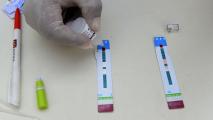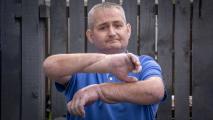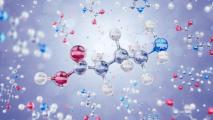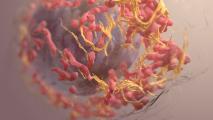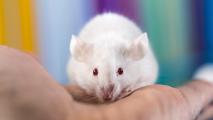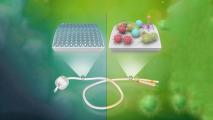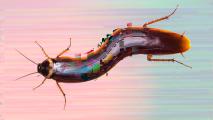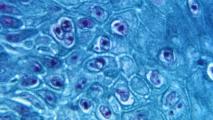
Biotech
Human history has been all but defined by death and disease, plague and pandemic. Advancements in 20th century medicine changed all of that. Now advancements in 21st century medicine promise to go even further. Could we bring about an end to disease? Reverse aging? Give hearing to the deaf and sight to the blind? The answer may be yes. And soon.
More
The US Civil War drastically reshaped how Americans deal with death – will the pandemic?
How do American’s attitudes towards death change when they are confronted with such enormous losses?
Small trial of cancer immunotherapy sends every patient into remission
Every participant in a small trial testing a rectal cancer immunotherapy has had their disease go into complete remission.
Geopsychology: Your personality depends on where you live
Scientists in the relatively new field of “geopsychology” are seeing links between personality and location.
Three more nations eliminate sleeping sickness as a public health threat
Sleeping sickness is a horrifying disease mainly impacting the rural poor. But three more African nations have succeeded in curtailing its threat.
Nuclear isomers were discovered 100 years ago
Protons and neutrons in an atom’s nucleus can be arranged in different configurations, creating nuclear isomers.
Why at-home STI tests may (finally) be about to take off
Inspired by the home testing of the pandemic and rising STI cases, some experts think that more accessible testing may be an important public health tool.
This already-approved drug could help repair the brain after stroke
Ohio State researchers have found that an already approved anticonvulsant drug helps increase stroke recovery in mice.
Study reveals the dynamics of human milk production
MIT researchers performed a large-scale study of the cells in human breast milk, allowing them to track how these cells change over time.
UK man receives double hand transplant to treat rare disease
UK surgeons have performed the world’s first double hand transplant to treat scleroderma, a rare autoimmune disease.
A new treatment may cure neuropathic pain
A gene therapy tested in animals may be a safe, permanent, and non-addictive treatment for neuropathic pain in humans.
New surgery implants living, 3D-printed body parts
A 3D-printed outer ear made from the patient’s own cells has been implanted.
Genetic mutations can be benign or cancerous – here’s a new way to identify them
Identifying the difference between normal genetic variation and disease-causing mutations is vital for determining a person’s treatment.
HIV drug could improve memory
The common HIV drug maraviroc improved memory linking in aging mice and might be able to help people experiencing memory loss, too.
The source of a strange anti-cancer compound is found in Florida
Researchers have discovered that common soft corals are the source of a sought-after anti-cancer compound.
New tech could help prevent 2/3 of hospital-acquired infections
A new treatment could prevent hospital-acquired infections by making it hard for biofilms to form on implanted medical devices.
Why haven’t plastic-eating bacteria fixed the plastic problem yet?
Texas scientists have created an enzyme that could keep billions of pounds of plastic out of landfills.
First CRISPR’d cockroaches open door to other gene-edited insects
It’s now easier for scientists to create gene-edited insects thanks to a new technique called “direct parental CRISPR.”
What is monkeypox, and how we may fight it
As monkeypox cases crop up around the world, vaccines designed for the far deadlier smallpox may play a key role in stopping it.
Ultrathin fuel cell uses the body’s own sugar to generate electricity
Batteries have a limit to how small they can be made, and they need to be charged. What if you could power your own medical device?
New drug combo is “a paradigm shift” in preventing asthma attacks
The combination of a rescue medication and a corticosteroid, taken as needed, reduced both short and long-term risk of asthma attacks.
Get inspired with the most innovative stories shaping the world around us.


















